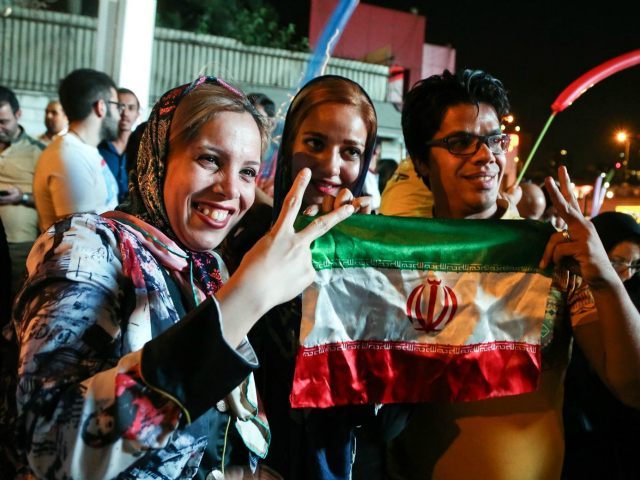On Monday, Iran announced that it had regained access to over $100 billion in previously frozen assets, as a result of its nuclear deal.
“Government spokesman Mohammad Bagher Nobakht said much of the money had been piling up in banks in China, India, Japan, South Korea and Turkey since international sanctions were tightened in 2012 over Tehran’s nuclear program,” the Associated Press reports.
Nobakht added that the assets “have been fully released, and we can use them.” Iran reportedly plans to leave some of the money overseas for making international purchases. Also, a report by the Kurdish news agency Rudaw observes that bringing all of the money home at once could have a deleterious effect on the Iranian economy, potentially including an inflation spike.
Iranian central bank official Nasser Hakimi further announced that nine Iranian banks were now reconnected to Belgian-based SWIFT, which will handle wire transfers because foreign banks do not operate in Iran.
Over the summer, Obama administration officials rebuffed Republican critics of the nuclear deal by insisting that Iran would not recover full access to its frozen assets.
“We estimate that after sanctions relief, Iran will only be able to freely access around half of these reserves, or about $50 billion,” testified Treasury Secretary Jack Lew before the Senate, flanked by Secretary of State John Kerry and Energy Secretary Ernest Moniz.
When this estimate proved to be off by 100 percent, reporters were treated to the amusing spectacle of State Department spokeswoman Marie Harf claiming that the difference between $50 billion and $100 billion was a minor “math error.”
Harf then tried to pin all the blame for radically underestimating the size of Iran’s windfall on the Treasury Department, and finished up by insisting the Treasury Department is not really part of the same government organization as the White House, contrary to any stories the reader may have heard about some kind of “administration” managed by a “president.”

COMMENTS
Please let us know if you're having issues with commenting.